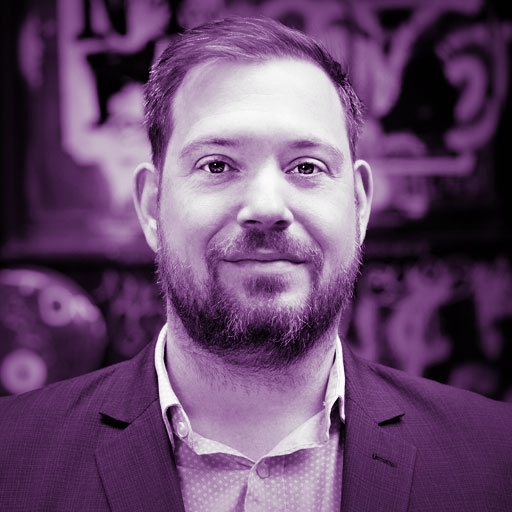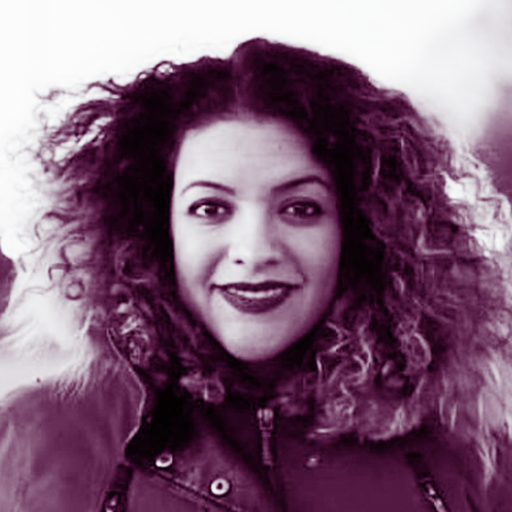Episode 196: Redefining Belonging – Jessica’s Journey from Adoptee to Advocacy
This National Adoption Month, we hear from Jessica Luciere, a transracial, transnational adoptee, who shares her journey of self-discovery. Growing up with the love and support of her parents, Jessica also yearned for a sense of community to help her navigate her identity. She ultimately realized the importance of representation and the power of connecting to others with similar backgrounds.
Today, Jessica works alongside adoptees, families, and professionals, as a program facilitator and adoptee advocate, creating spaces that celebrate and honor diverse backgrounds and foster deeper connections. Join us as Jessica dives into the importance of community, mentorship, and how she’s using her experience to support others.
Guest: Jessica Luciere, Adoptee Advocate
Host: Dan Bulger, Progyny
A note from our host: My parents were foster parents throughout my life. Over time, they helped over 100 kids before they retired. In fact, my younger brother was adopted through that program. Being a kid, I had a different family life than my friends and neighbors. For me, it was a source of pride, and I still believe my parents are heroes.
For more information, visit Progyny’s Podcast page and Progyny’s Education page for more resources. Be sure to follow us on Instagram, @ThisisInfertilityPodcast and use the #ThisisInfertility. Have a question, comment, or want to share your story? Email us at thisisinfertility@progyny.com.
This episode is also a video! Watch it here:
Growing Up, Adopted
03:12 – 05:38
Jessica Luciere: My parents had been married for, I think, about seven or eight years at the time, and got pregnant and my mother had gotten sick while she was pregnant, and this was back in the late 70s when, I guess, there weren’t probably as many preventative services around. So, it caused her to deliver early and then, unfortunately, their daughter only lived for about two weeks. She was always a conversation in our home at the time, and the experience was not always part of our conversation, but I always knew about Stephanie. I think you know them always wanting to continue and build a family and have a child.
It was tough to understand from a young person’s perspective, why I would walk into a room with my parents, and some people would look at me and try to figure us out a little bit more. I joined my family at three months. So, my parents are my parents. They are the people that I’ve known my whole life. And of course, I knew that I had been born somewhere else, they were always very open and honest with me about that, which I’m very thankful for. But as much as I knew that, I can’t say that it was ever on my mind when going into new spaces.
From Mentors to Mentorship
07:26 – 08:24
Reclamation of Identity
08:54 – 17:57
Jessica Luciere: We talk about the importance of having representation of your child’s racial background, their cultural background, integrated into the family before the child joins their family. It helps to make the family feel as though it’s not just, you know, parents adopting from this country that they may not have a connection with other than having their child from there.People who are adopted, and especially those of us transnational adoptees tend to kind of find a tie at some point in their lives to their birth culture, to their country, and usually it’s the language, it’s the food, that are those first steppingstones into reclamation of that piece of your identity. And so, if that’s kind of already embedded in what your family has put in front of you and has given you the opportunity for and themselves, then it’s a little bit less of this huge transition, this re-adoption of who you were. And also, finding community, finding other places where your child finds representation, having mirrors for them in their lives, and having that integrated in very purposefully.
When you are able to find community and find that you’re not the only one. There’s a lot of people out there that have had a lot of the same questions, that have gone through very similar things. When you’re able to talk about your experiences and how you feel, it’s empowering. You know, it’s an important space for growth.
A Growing Perspective
20:57 – 22:46
Jessica Luciere: Every person’s story changes my own narrative. Everything that I know about adoption or everything that I know about my own experience changes when I talk to somebody else, and I hear what their experience was like. Regardless of how different our beginnings were, those stories are what keeps me doing this work. It keeps me thinking about how we can create more programming and create more spaces to uplift adopted people and their voices to make sure that we’re centering the adopted person.Dan Bulger: That person you’re going to adopt needs and deserves this connection, and you as their parent, are going to be their safe space. So, if you’re going in, dive in, soak up as much as you can, incorporate that culture, learn the tools you need to succeed, and when the time comes, practice openness.

Host
Dan has been in the healthcare industry for the past ten plus years as a multimedia content producer. Better known as ‘Video Dan’ he has interviewed numerous doctors, patients and other experts in the world of fertility. He’s also the producer for this podcast, This is Infertility and the producer behind the Progyny YouTube Channel which features interviews with dozens of the nation’s leading fertility specialists. On a personal note Dan’s parents started fostering kids when he was four years old, and he considers himself a proud older brother to over 100 foster children.

Guest
Jessica M. Luciere is a transnational Colombian adoptee who grew up on Long Island, New York, with her Irish/Italian parents. She is an Adoptee Advocate, dedicated to creating spaces where the adoptee voice and experience is elevated and honored. Jessica is a mother of two and wife currently living on Long Island, she has been in reunion with birth family since 2006. Within her current role as the Associate Director of Family & Community Support at Spence-Chapin, she oversees all programming supporting adopted people and their families from ages 0 through adulthood, including family playgroups, Mentorship programs, virtual spaces for adopted people all around the world, and parent groups, to name a few. Jessica is also a Board member of IAmAdoptee.org, a nonprofit organization highlighting transnational adopted people, and mental health. She has previously worked with A.F.F.C.N.Y., and is the former President of All Together Now, a nonprofit organization supporting adoptees and their families based in Brooklyn, NY. Creating representation and supportive resources for adoptees is the center focus of her work, and what continues her passion for working within the community.



